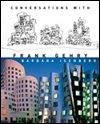 Authors born this week:
Authors born this week:Nobel Prize in Literature
Playwright, novelist Luigi Pirandello (1934) Novelist Herman Hesse (1946) Poet Czelow Milosz (1980), Poet Wislawa Szymborska (1996)
George Sand, Nathaniel Hawthorne, Franz Kafka, George Duhamel, Antoine de Saint Exupery, Joanne Harris, Mark Helprin, Evelyn Lau, Florian Zeller
Poets: Giacomo Leopardi, Vasco Popa, Jose Emilio Pacheco Playwrights: John Gay, George M. Cohan, Neil Simon, Mel Brooks, Tom Stoppard
Thinkers: Gottfried Wilhelm Leibniz, Jean Jacques Rousseau, Thomas Nagel Believers Raymond A. Moody Scientists: Alfred Korzybski Historians John Toland, Harold Evans
Humorists, Essayists, Editors, Journalists, Officials, Media and Others
Humorists: Dave Barry Essayists: Howard Taubman M. F. K. Fisher Editors: William Strunk, Jr., A. E. Hotchner Journalists: Oriana Fallaci, A. A. Gill, Matthew Fraser Media and others: Stephen Foster, Curt Sachs, Ann Landers, Abigail Van Buren, Geraldo Rivera, Ron Kovic, Montel Williams
Mystery / Crime / Suspense Writers
Suspense: Eric Ambler, Winston Graham, Charles Higson, Matthew Reilly
Fantasy / Science Fiction Writers
Fantasy: Darren Shan
Cartoonists: Rube Goldberg, Yoko Komio
Young People’s Writers
Children’s: Esther Forbes, Jean Craighead George Teens: Julie Burchill
Events to read about:
 It's all about Independence this week: The colonies separate from England, Thoreau moves out of the city, newspapers gain independence from some workers, businesses that are too big are told to become independent, Amelia Earhart flies so far away from things she disappears, after the Stonewall Riots gays leave the closets, and the voting age gets lowered giving eighteen-year-olds independence. Along the way a military college opens, a war ends, and people strive to end nuclear proliferation. Music and movies keep us entertained during all that.
It's all about Independence this week: The colonies separate from England, Thoreau moves out of the city, newspapers gain independence from some workers, businesses that are too big are told to become independent, Amelia Earhart flies so far away from things she disappears, after the Stonewall Riots gays leave the closets, and the voting age gets lowered giving eighteen-year-olds independence. Along the way a military college opens, a war ends, and people strive to end nuclear proliferation. Music and movies keep us entertained during all that.This Week’s Questions:
"Wisdom is not communicable. The wisdom which a wise man tries to communicate always sounds foolish."
Answer to Last Week’s Questions:
"Words are loaded pistols." – Jean Paul Sartre
 "Writing is just having a sheet of paper, a pen, and not a shadow of an idea of what you're going to say." – Francoise Sagan
"Writing is just having a sheet of paper, a pen, and not a shadow of an idea of what you're going to say." – Francoise Sagan "Inspiration is a farce that poets have invented to give themselves importance." – Jean Anouilh
"All writers are vain, selfish, and lazy, and at the very bottom of their motives there lies a mystery." – George Orwell
"Until one has some kind of a professional relationship with books. one does not discover how bad the majority of them are." – George Orwell













